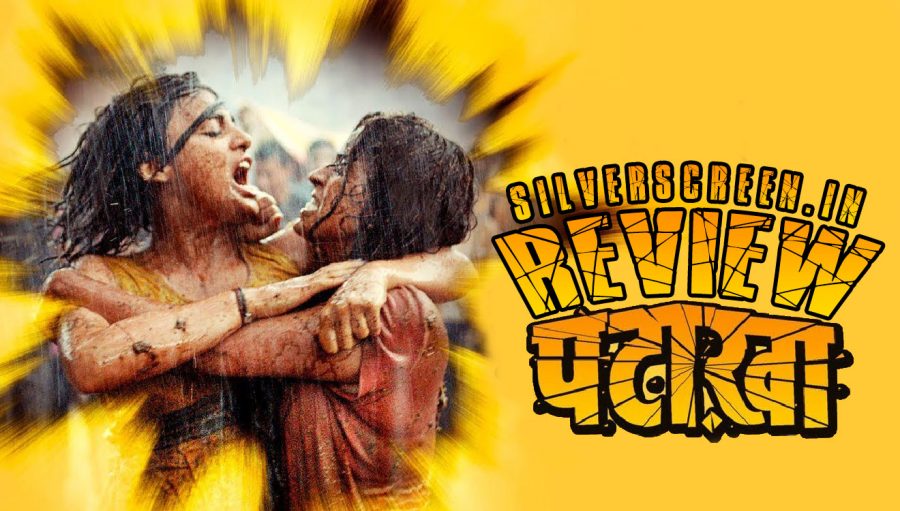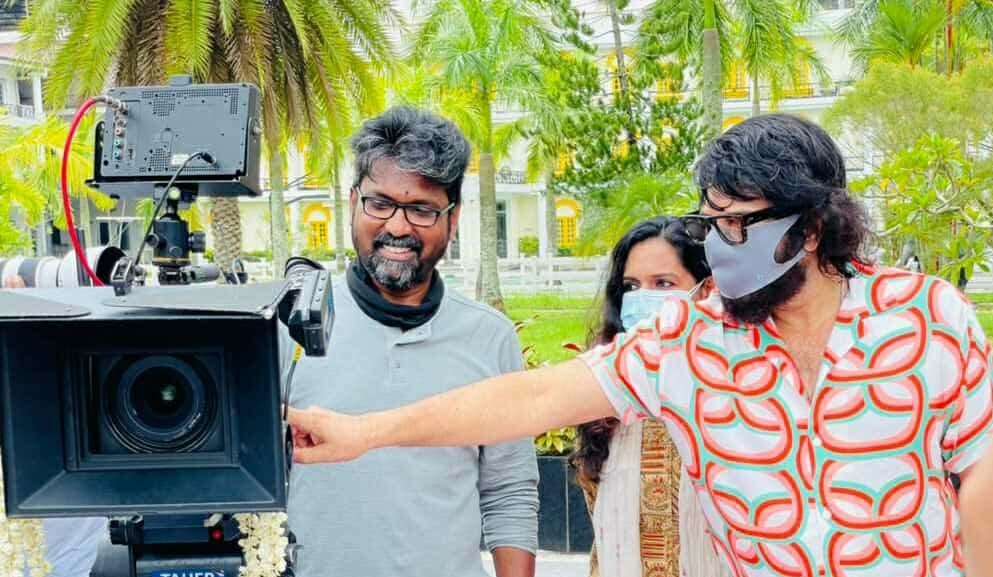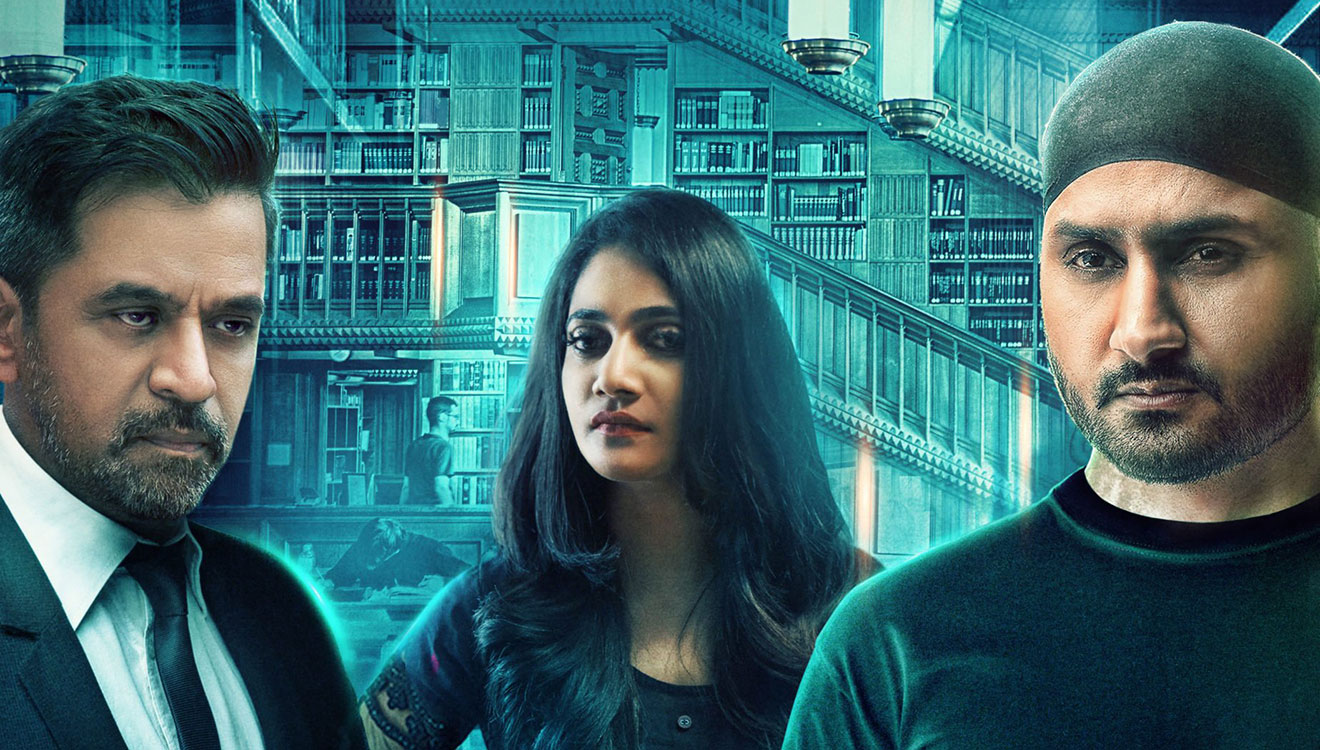Director & Composer: Vishal Bhardwaj
Cast: Sanya Malhotra, Radhika Madhan, Sunil Grover, Vijay Raaz
Half way through Vishal Bhardwaj’s Pataakha, a lull creeps in. As though the film has emptied its reserves, and there is nothing more it has got to show. The two sisters, Champa ‘Badki’ Kumari (Radhika Madan) and Genda ‘Chutki’ Kumari (Sanya Malhotra), after years of fighting, conniving against each other and being a constant headache to their father, Shantibhushan (Vijay Raaz), settle into mundane married lives. It looks as though their complicated relationship, on which the film had founded itself, has hit a dead-end.
This unevenness in narration has come to be a customary feature of Vishal Bhardwaj films of late. His Rangoon (2017) began brilliantly as a slow-burning romantic-drama set in the 1940s, but you could sense it losing steam close to the halfway mark. It was as though he’d lost interest in the fate of the characters too soon. Pataakha, which is based on a short story, Do Behnein, written by Charan Singh Pathik, begins with the vigour of a burlesque comedy or a mad-cap country circus. The sisters, full-grown teenagers attending a local school, fight over beedi, clothes and everything under the sun. They call each other names, tear each other’s clothes, and attack each other like wild animals. And the village watches on and cheers. There is Sunil Grover’s Dipper, a clown of sorts in this circus, moderating the sisters’ battles. He is omnipresent in the film, and his loyalty lies exclusively with the sisters to whom he is not related by birth. He is a well-wisher, someone who looks at the sisters with kindness and sympathy. Dipper might be Bhardwaj himself.
The girls find partners for themselves, and elope with them when a village Shylock, a lewd man named Patel, to whom Shanthibhushan owes a massive debt, demands that one of the girls be wedded to him. The scenes that follow are hilarious, reminiscent of the chaos in an Emir Kusturica film. The father’s initial guilt about having to trade a daughter turns into anxiety and silent resignation when he finds out that they have run away. Vijay Raaz is the most rational character in the entire movie. Like an old wise man, he holds his fort in the madness that unfolds around him.
What makes the sisters special, apart from their rather unusual enmity, is their burning ambition to pursue their dreams. Champa Kumari wants to quit school and focus on founding a dairy farm, while Genda wants to study further and open a school for the village kids. It is to realise these dreams that the girls choose a boyfriend. Genda falls for Vishnu, an army officer, the moment he uses “pleej” (please) in a conversation. He knows English, and she knows that’s the ladder she needs. Champa chooses an engineer, Jagan, primarily because he is the best option available around, and secondly, she finds him soft and domestic enough to be her partner in chasing her dreams. While it’s easy to understand the girls individually, it’s hard to say what ties them together or keeps them apart. Do they really hate each other? We never really get to know.
The film’s dialogues are witty, and the masterful staging of the scenes render many of them memorable. For instance, take the scene where the father tells the girls of the harmful effects of tobacco. Raaz’s deadpan expressions are a perfect foil to the girls’ animated performances. And Bhardwaj still has that famous flair for infusing music into the narrative in the most delicate manner.
The India-Pakistan allegory in the girls’ story comes across like a loud joke, and is repeated several times that it gradually ceases to be funny.
Recommended
Pataakha lets Sanya Malhotra and Radhika Madan break the cage that conventional cinema has built for female characters. They roll in the mud, get dirty, run through the village’s alleys like they have a pack of dogs chasing them, and are as unsophisticated as they want to be. The women don’t bear the burden of having to look nice for the spectators or the co-characters; and the actresses deliver exceptional performances – honest and unhindered – their energy rightly moderated by Vishal Bhardwaj.
*****
The Pataakha review is a Silverscreen original article. It was not paid for or commissioned by anyone associated with the movie. Silverscreen.in and its writers do not have any commercial relationship with movies that are reviewed on the site.



